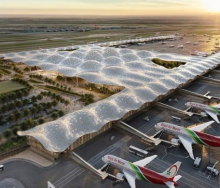THE legal requirement
for all businesses
to ensure their staff
quotas include 60%
South African citizens,
as claimed recently
by the Department of
Home Affairs, has been
disputed by the Federated
Hospitality Association of
South Africa (Fedhasa).
Last month Fedhasa took
issue with a statement
released by the DHA
following a meeting on
January 31 to discuss
compliance issues on the
employment of immigrants
vis-à-vis South African
citizens
Home Affairs Minister,
Malusi Gigaba, pinpointed
the hospitality and
construction sectors
as strong employers of
non-South Africans, with
incidents of xenophobia
sometimes a result
of these employment
practices, he said.
Fedhasa, however, said
that the requirement
to employ a minimum
of 60% South African
citizens – a provision
in the Immigration Act
and Regulations – only
applied to foreigners who
applied to Home Affairs
for business visas, with
the intention of starting or
investing in a business in
South Africa.
“One of the conditions
attached to the business
visa is that the applicant
undertakes to employ
not less than 60%
South Africans, including
permanent residents,
within a period of 12
months from the date
of issue of the visa.
There is currently no
provision in South African
labour legislation that
makes reference to the
employment of a minimum
of 60% South Africans,”
said Fedhasa.
The association further
rejected the perception
that the hospitality sector,
and in particular the
restaurant sector, illegally
employed foreigners
without the correct
entry permits and visas.
“Fedhasa’s standpoint
on this is absolutely
clear,” said ceo, Tshifhiwa
Tshivhengwa: “We expect
that any hospitality
establishment is well
aware that they could face
serious consequences if
their employees do not
have the proper authority
to live and work lawfully in
the country.”
Nailing down the
size of the problem of
illegal non-South African
workers in the industry is
challenging in the absence
of research to determine
numbers and types of
positions occupied.
There are popular
but unsubstantiated
perceptions that
foreigners work for lower
wages and have stronger
work ethics than South
Africans.
Despite its differences
with the DHA, Fedhasa
welcomed engagement
with the department,
pledging to collaborate on
educating its members on
immigration regulations.
Fedhasa questions DHA’s take on employment regulations
01 Mar 2017 - by Michelle Colman
Comments | 0















